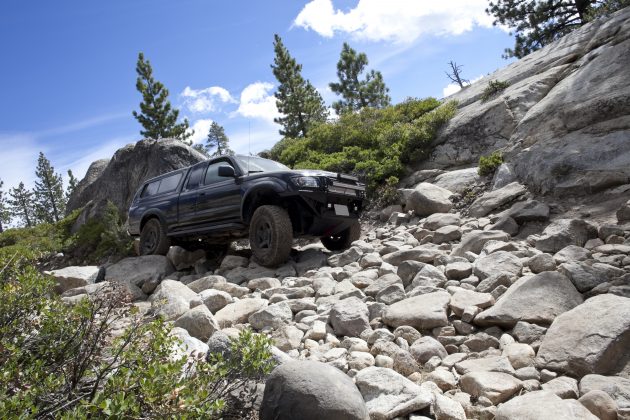With rugby season now here, it's time to hit the road. Here are some travel tips for the enthusiastic tourists driving from game to game
Although rugby is played in many countries all over the world, Britain is the most rugby-keen among them. A great number of rugby fans travel across the UK to watch their favourite team play. Touring the UK by car is the fastest and the most comfortable way to get to different game locations, but as you don’t want unpleasant emergencies to happen on the road, here is how to prepare your vehicle for a big rugby trip – tips shared by giga-tyres.co.uk, the nation’s leading dealership of tyres and car accessories.
Find out the roads and get your tyres ready
Knowing exactly what kind of terrain you are going to encounter and equipping your car accordingly will protect you from unfortunate emergencies that can spoil your trip. If you are just travelling from city to city without turning off-road, make sure your tyres have the minimum legal tread depth of 1.6 mm and that they are correctly inflated. Use your tyre pressure gauge to check the pressure in all four tyres and compare it with the recommendations by your vehicle’s manufacturer (can be found on the driver’s door jamb or in the owner’s manual). You need to stick to those recommendations to prevent tyre tread from wearing down irregularly and heat from building up inside tyres and damaging them eventually. Both under-inflation and over-inflation are harmful to tyres and can cause a tyre failure.

Get your tyres ready: giga-tyres.co.uk has you covered
If you plan to turn off the road and navigate any outskirts, make sure your tyres are up for the task. Consider all-terrain tyres if you are going to spend a big part of your trip off-roading.
Rugby is predominantly a winter game, so chances are that you’ll have to hit the road at near-freezing temperatures. Keep in mind that tread on summer tyres hardens as the temperature drops below seven degrees Centigrade, so if you wish to have a safe trip, switch over to winter tyres, especially if you plan some off-roading during the trip. Winter tyres offer a better grip on ice and snow and their breaking distance is half as much (in comparison with summer tyres).
Know how your car works
We don’t mean you must be able to fix the car’s engine to be eligible for the trip, but you need to know the basics: what do those lights on the dashboard mean, how those buttons work, how to check the levels of fluids. Before hitting the road, inspect your headlights, windscreen wipers, and brakes. Make sure all liquids (anti-freeze, transmission and brake fluids, and motor oil) are fresh enough and are at the level between ‘min’ and ‘max’. Add to them if needed. Test your air conditioning for the hot season and the heater for the cold one. Also check belts and hoses for signs of excessive wear such as cracks, looseness, or friability and replace worn ones as these parts are key in electrical systems, power steering, and air conditioning.

Parked up: Fans gear up for a Test in the Twickenham carpark
Prepare for the emergency
Unless you have a full breakdown cover or your insurance plan includes a roadside recovery, get emergency numbers saved on your mobile phone (write them down by hand as well). Pack the first-aid kit (add your personal medications if you suffer from chronic illnesses) and the tool kit for a simple repair (car jack, tyre repair kit, jumper cables, adjustable wrench, funnel, screwdrivers, socket wrench etc.). Think out the scenario – what you will do if you get a flat tyre. It’s good to have a spare tyre in proper condition and tob be capable of mounting it by yourself.





